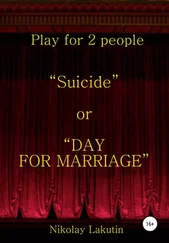My point is this: A part of me has real sympathy for the Chinese couple, both university professors, who married, went to bed with each other faithfully every night, and, after a year, visited a doctor, wondering why no child had come from their union. They thought sleeping beside each other was enough. Nobody told them that more elaborate activity was necessary. Surely this is a case of an erotic culture gone with the wind. (In China among the class that could afford to cultivate it, the female body had become a refined aesthetic object. In Xi’an I saw a very old woman with bound feet. She could no longer walk and had to be carried. Those tiny, crippled feet were the gruesome legacy of a lost art. Binding feet made them small enough to fit into a man’s mouth.) The famous parental lecture on the birds and the bees, the butt of endless jokes and deemed largely unnecessary in our world, never took place in the lives of the two puzzled professors. Butwhere were their bodies? We imagine that proximity would be enough, that natural forces would lead the conjugal couple to sexual happiness. But my feeling is that it isn’t true, that all of us need a story outside ourselves, a form through which we imagine ourselves as players in the game.
Consider standard erotic images. Garter belts and stockings still have a hold on the paraphernalia of arousal — even though, except for the purpose of titillation, they have mostly vanished from women’s wardrobes. Would these garments be sexy if you’d never seen them before? Would they mean anything? But we can’t escape the erotic vocabulary of our culture any more than we can escape language itself. There’s the rub. Although feminist discourse in America understandably wants to subvert cultural forms that aren’t “good” for women, it has never taken on the problem of arousal with much courage. When a culture oppresses women, and all do to one degree or another, it isn’t convenient to acknowledge that there are women who like submission in bed or who have fantasies about rape. Masochistic fantasies damage the case for equality, and even when they are seen as the result of a “sick society,” the peculiarity of our sexual actions or fantasies is not easily untangled or explained away. The ground from which they spring is simply too muddy. Acts can be controlled, but not desire. Sexual feeling pops up, in spite of our politics.
Desire is always between a subject and an object. People may have loose, roving appetites, but desire must fix on an object even if that object is imaginary, or narcissistic — even if the self is turned into an other. Between two real people, the sticky part is beginning. As my husband says, “Somebody has to make the first move.” And this is a delicate matter. It means reading another person’s desires. But misreading happens, too. When I was in my early twenties in graduate school, I met a brilliant, astoundingly articulate student with whom I talked and had coffee. I was in love at the time with someone else, and I was unhappy, but not unhappy enough to end the relation. This articulate student and I began going to the movies, sharing Chinese dinners, and talking our heads off. I gave him poems of mine to read. We talked about books and more books and became friends (as the saying goes). I was not attracted to him sexually, nor did I glean any sexual interest in me from him. He didn’t flirt. He didn’t make any moves, but after several months, our friendship blew up in my face. It became clear that he had pined and suffered, and that I had been insensitive. The final insult to him turned on my having given him a poem to criticize that had as its subject the sexual power of my difficult boyfriend. I felt bad. Perhaps never in my life have I so misinterpreted a relation with another person. I have always prided myself on having a nearly uncanny ability to receive unspoken messages, to sense underlying intentions, even unconscious ones, and here I had bollixed up the whole story. No doubt we were both to blame. He was too subtle, and 1 was distracted — fixated on another body. Would the Antioch Ruling have helped us? I doubt it. A person who doesn’t reach out for your hand or stroke your face or come near you for a kiss isn’t about to propose these overtures out loud. He was a person without any coarseness of mind, much too refined to leap. He thought that dinner and the movies meant that we were on a “date,” that he had indicated his interest through the form of our evenings. I, on the other hand, had gone to lots of dinners and movies with fellow students, both men and women, and it didn’t occur to me that the form signified anything in particular; and yet the truth was, I should have known. Because he was so discreet, and because I lacked all sexual feeling for him, I assumed he had none for me.
Nineteenth-century conventions for courtship have been largely disassembled in the latter half of this century, bending the codes out of shape. People marry later. The emphasis on virginity for women has changed. Single women work and are not expected to give up their jobs once they marry. Men have been digesting a set of new rules that are nevertheless colored by the old ones. People still court each other, after all. They are still looking for Romance of one kind or another — short or long — and each one of them is alone out there reading and misreading the intentions of others. The Antioch Ruling was clearly a response to the chaos of courtship — a way of imposing a structure on what seemed to have collapsed — but ambiguity remains, not just in interpretation but even in desire itself. There are people, and we have all met them, who can’t make up their minds. There are people who say no when they mean yes, and yes when they mean no. There are people who mean exactly what they say when they say it, and then later wish they had said the opposite. There are people who succumb to sexual pressure out of a misplaced desire to please or even out of pity. To pretend ambiguity doesn’t exist in sexual relations is just plain stupid.
And then there are moments of interruption — those walls that block desire. I was absolutely mad about a boy in high school, but there was something about his nose when he kissed me, something about its apparent softness from that angle, that I disliked. To my mind, that nose needed more cartilage. I kept my eyes shut. I know of a woman who fell for a man at a party. She fell hard and fast. They returned to her apartment in an erotic fever, kissing madly, throwing their clothes off, and then she looked across the room and saw his underwear. If I remember correctly, it was some male version of the bikini bottom, and her attraction vanished suddenly, irrevocably. She told the poor man to leave. An explanation was impossible. What was she to say? “I hate your underpants”?
Sexual freedom and eroticism are not identical; in fact, freedom can undermine the erotic, because the no-holds-barred approach is exciting only if you’ve just knocked down the door. And despite the fact that dinner, a movie, and a kiss at the door have taken a beating in recent years, seduction is inevitably a theater of barriers, a playing and replaying of roles, both conscious and unconscious. Sincerity is not at issue here; most of us play in earnest. Through the language of clothes and gesture and through talk itself, we imagine ourselves as the other person will see us, mirroring our own desire in them, and most of what we do is borrowed from a vocabulary of familiar images. This is not a territory of experience that is easy to dissect legally.
Apparently, there is a new law in Minnesota against staring. It has been duly mocked in newspapers all over the world, but according to my sister, it came about because of the increase in the number of construction sites around Minneapolis, and women were weary of walking past them. Most women have experienced these painful, often humiliating excursions in front of an ogling, jeering crowd of men, and I don’t know of anyone who likes them. This event — the construction crew whooping and hooting at a passing woman — is a convention, a thing those guys do in a group and only in a group, to liven up the job, to declare their masculinity to the world safely. It’s the pseudo-sexual invitation. Not a single one of those men expects the woman to say, “Yes, I’m flattered. Take me, now.”
Читать дальше












